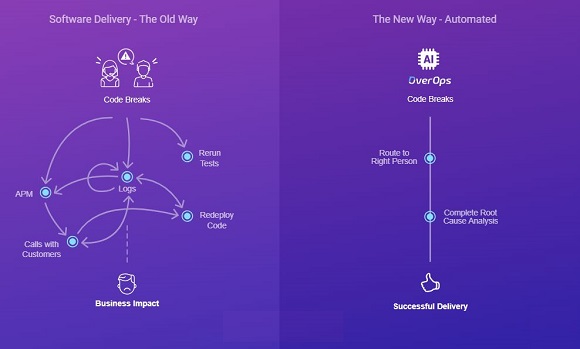OverOps calls for a new approach to ‘functional’ health
The Computer Weekly Developer Network spoke this month to Eric Mizell in his role as VP of solution engineering at OverOps.
OverOps is California and Tel Aviv headquartered software analytics that specialisis in static and dynamic (real time) code ‘event’ analysis technology – its technology focus is on large-scale Java and Scala code bases.
We spoke to Mizell on the topic of holistic applications.
Not perhaps a formally defined technology industry term, the holistic application is an app that has arisen in the age of cloud with containerisation, microservices and compartmentalisation of discrete components at its core.
Mizell says that in the age of the holistic application, there is a need for new levels of visibility and interoperability across the software development supply chain.
The new composable, containerised, compartmentalised world is creating headaches for those tasked with the challenge of maintaining the reliability of these complex applications.
Functional issues
“Even within the context of monolithic applications, our dependence on 30-year old technology like logging frameworks to identify functional issues in production code is substandard at best — within the context of microservices and holistic applications, it is nearly worthless,” said Mizell.
He poses the following pair of questions:
- How do we define a call stack in a holistic application?
- How can we expect the limited information found in a log file to provide enough context into a functional issue within a distributed code base?
In search of a solution, Mizell says that while automation (CI/CD) is a key driver of this movement, it also relies on completeness of functional testing.
Functional health
“Discrete testing of a microservice is detached from the holistic testing necessary to determine overall quality of a distributed application. A new approach to functional quality/health is necessary. As we move from monolithic applications to a more dynamic approach to software, development and IT operations teams will need more granular visibility and context into the state of their code and improved methodologies for ensuring continuous reliability,” said Mizell.




